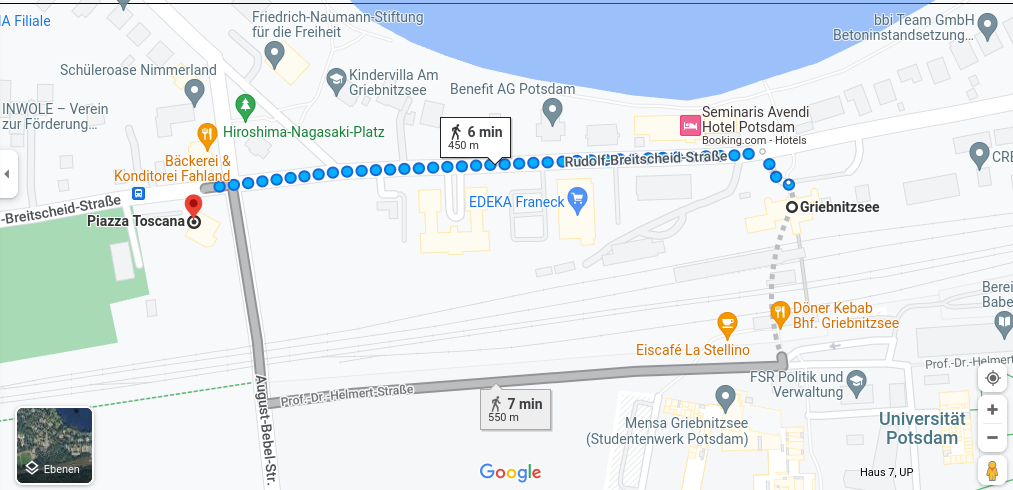Workshop Programme
CPSS 2022, Sep 12
- 13688
- CPSS @ KONVENS 2021
The workshop proceedings can be found here: pdf
Venue: Uni Potsdam, Komplex 3 - Haus 6, H01 (Hörsaalgebäude), August-Bebel-Str. 89, 14482 Potsdam
campus map
9:10 – 10:15
Welcome & Oral Session 1
- How toxic is antisemitism? Potentials and limitations of automated toxicity scoring
for antisemitic online content (Helena Mihaljević and Elisabeth Steffen) - Why justifications of claims matter for understanding party positions
(Nico Blokker, Tanise Ceron, André Blessing, Erenay Dayanik, Sebastian Haunss, Jonas Kuhn,
Gabriella Lapesa and Sebastian Padó) - Measuring plain language in public service encounters
(Wassiliki Siskou, Laurin Friedrich, Steffen Eckhard, Ingrid Espinoza and Annette Hautli-Janisz)
10:15 – 10:45
Coffee Break
10:45 – 11:15
Oral Session 2
- Networks of Power: Gender analysis in selected European parliaments
(Jure Skubic, Jan Angermeier, Alexandra Bruncrona, Bojan Evkoski, and Larissa Leiminger) - Zeitenwenden: Detecting changes in the German political discourse
(Kai-Robin Lange, Jonas Rieger, Niklas Benner, and Carsten Jentsch)
11:15 – 12:15
Poster Session
- Comparing the coverage of the “marriage for all” vote on Twitter and in the newspapers
(Maud Reveilhac and Gerold Schneider) - Uncovering policy uncertainty using semantic search
(Sami Diaf and Florian Schütze) - Moderation mining on social media
(Julian Dehne and Valentin Gold) - Automated multilingual detection of Pro-Kremlin propaganda in newspapers and Telegram posts
(Veronika Solopova, Oana-Iuliana Popescu, Christoph Benzmüller and Tim Landgraf) - Contagious populist radical right: The role of issue salience for the electoral success in EP elections
(Sara Schmitt, Uwe Remer and Raphael Heiberger) - Extracting fuzzy concepts from online job advertisements in German
(Johanna Binnewitt and Kai Krüger) - Putin’s world through a corpus of his speeches
(Natalia Levshina)
12:15 – 13:30
Lunch Break
13:30 – 14:10
Oral Session 3
- TopicShoal: Scaling partisanship using semantic search
(Sami Diaf and Ulrich Fritsche) - Aspect-based emotion analysis of Hungarian parliamentary speeches
(István Üveges, Veronika Vincze, Orsolya Ring, and Csenge Guba)
14:10 – 15:30
Panel: Theory-driven modelling of complex socio-psychological constructs in text
Panel speakers:
- Veronika Batzdorfer, Digital Society Observatory, GESIS
- Valentin Gold, Center of Methods in Social Sciences, University of Göttingen
- Camille Roth, Centre Marc Bloch, Berlin
- Henning Wachsmuth, Computational Social Science Group, University of Paderborn
15:30 – 16:00
Coffee Break
16:00 – 17:00
Keynote
- David Jurgens
School of Information and Electrical Engineering
& Computer Science, University of Michigan
Title: The challenges and opportunities of defining what is political in social media
Abstract: Studies of political speech on social media typically require defining who or what is political in order to analyze political behavior. However, these definitional choices have serious implications for what can be learned, as well as who or what is left out of the analysis. In this talk, I will describe two studies studying political text in social media and how design choices in what is political can lead to different interpretations in the results. The first study asks whether political users are more toxic to each other in Reddit in order to understand whether cross-partisan discourse is driving higher incivility. The second study examines the framing in speech about immigrants in Twitter to understand how political leaning influences different associations with immigrants. Across both studies, I show that political affiliation is linked to specific behaviors—toxicity and politics do frequently co-occur and some political leaning are more likely to use certain framing about immigrants than another—but that different choices in how we define political users and speech are necessary to provide more precise and nuanced insights of political behavior. Across both studies, I am to highlight the challenges and opportunities of computationally modeling political behavior in social media.
17:00 – 17:05
Closing
Workshop Dinner
Time: 19:30
Location: Piazza Toscana, Rudolf-Breitscheid-Straße 177, 14482 Potsdam

Workshop Proceedings & Programme
CPSS 2022 proceedings (pdf)